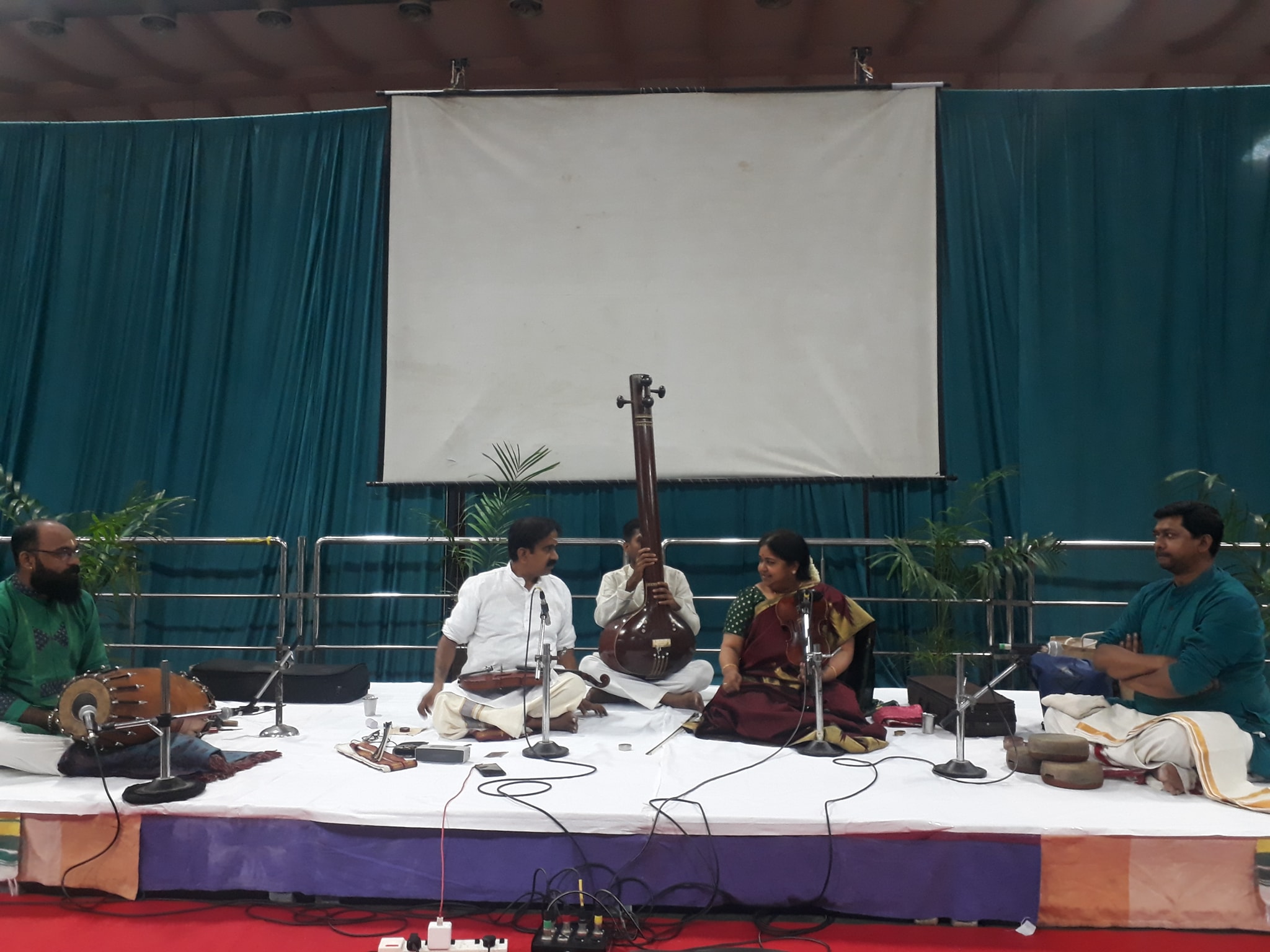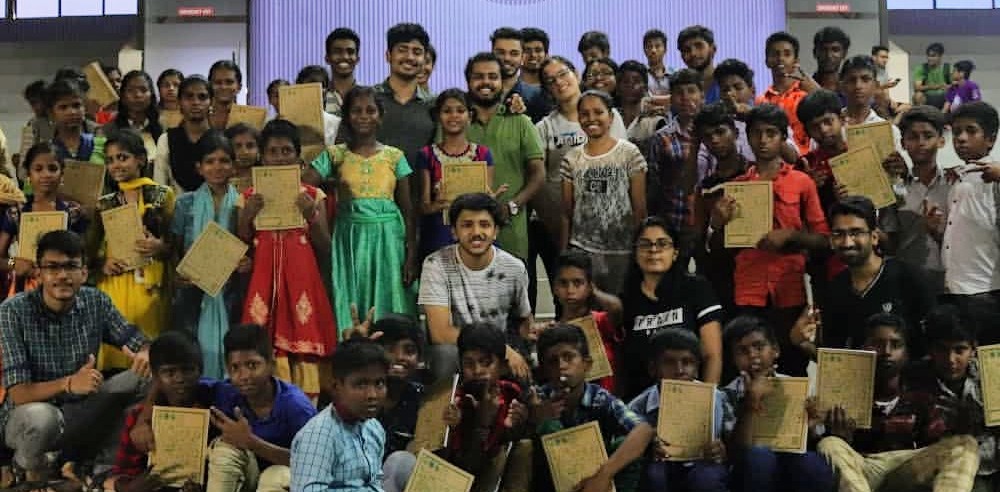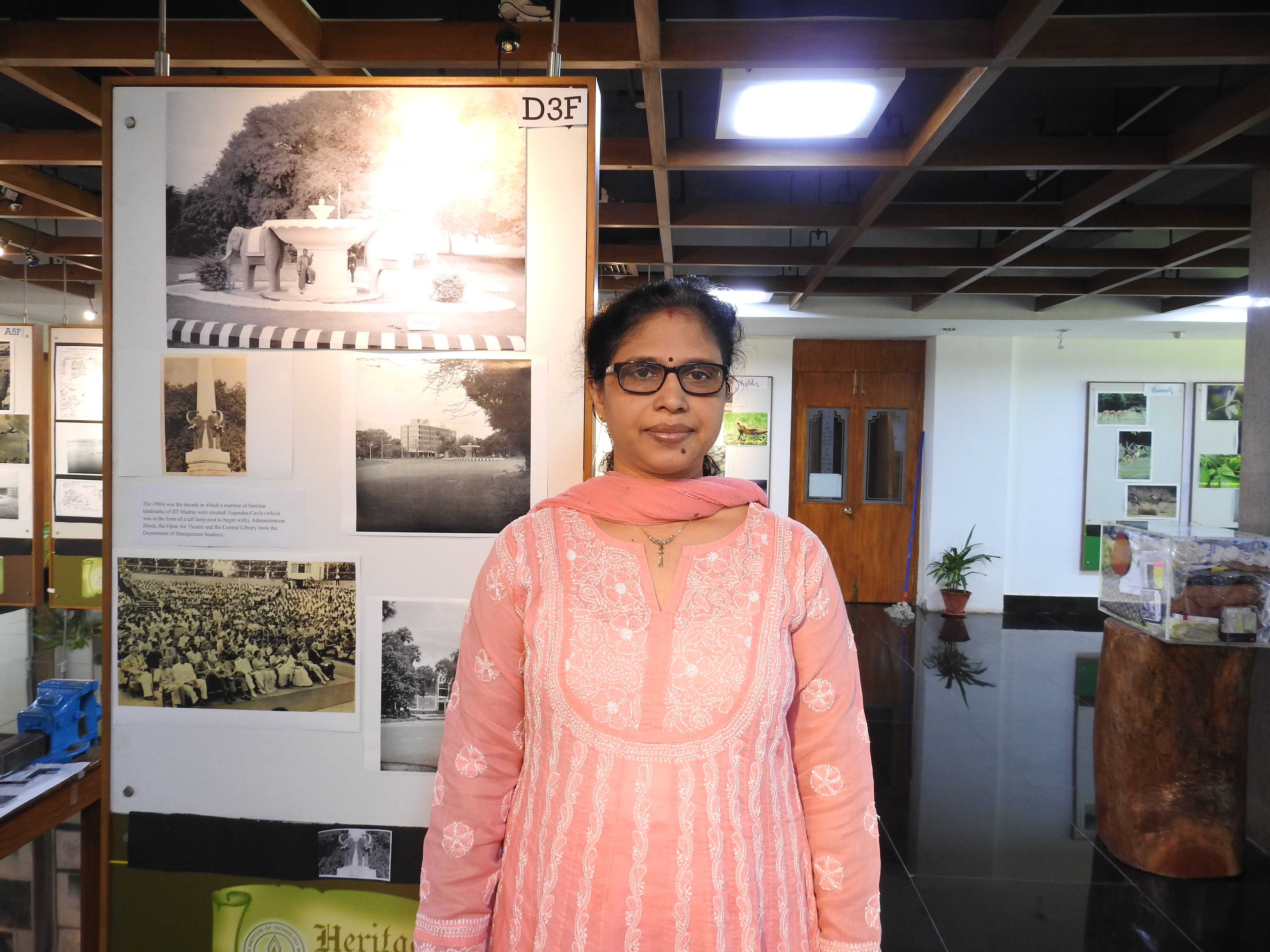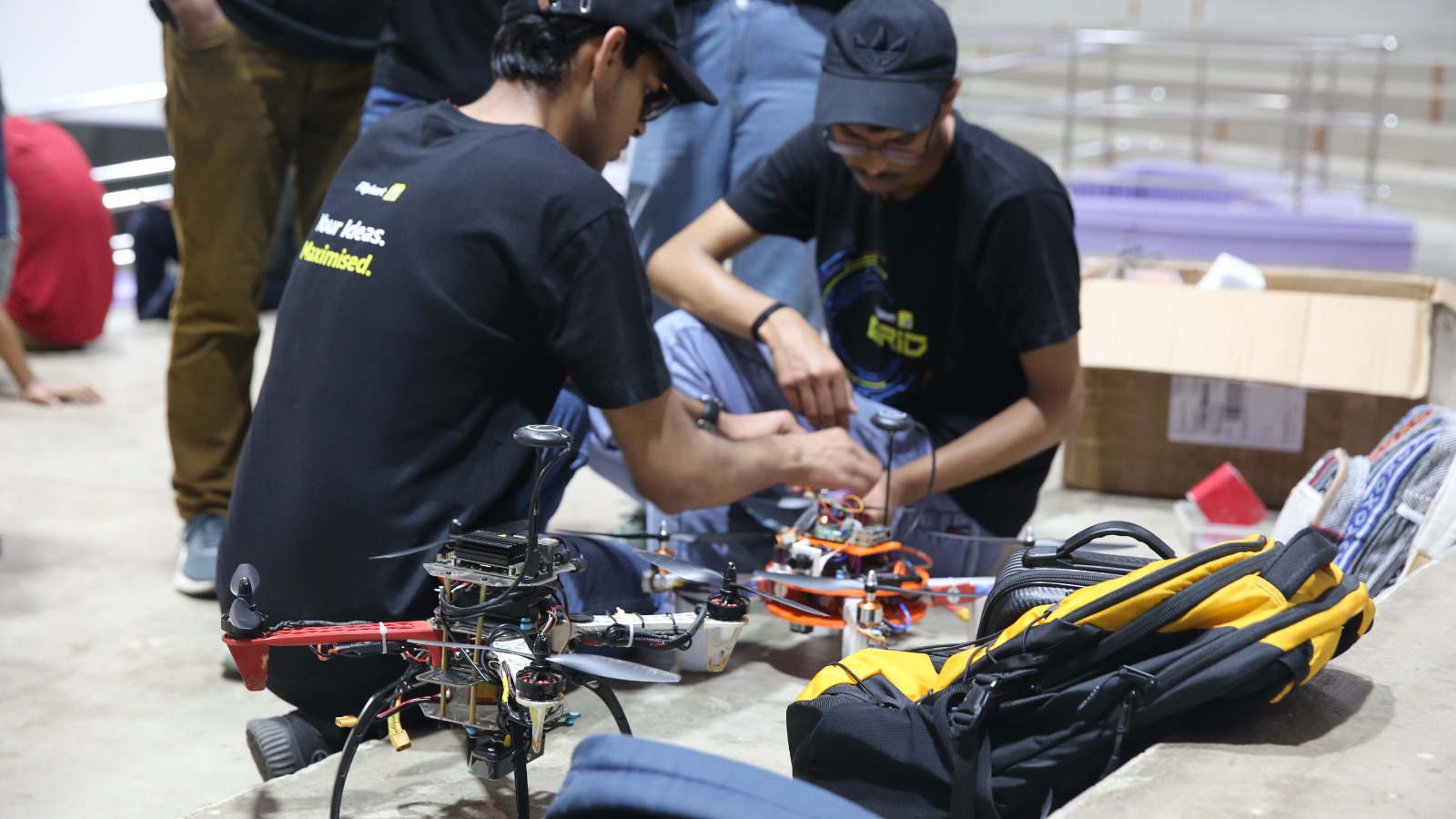Music, a placid lake, a raging storm. It can soothe your soul, it can ignite thousands of emotions. Some say it’s the language of love, the path to harmony between the body and mind. I see it as the crown jewel of arts. For centuries, Indian Classical Music has evolved not just as a means to entertain, but it has laid a path to a deeper spiritual experience, acting as the language of God – or whichever higher power you subscribe to – with its marvelous melodies. The two founding pillars of Indian Classical Music are Raga (a musical theme created using different notes of the octave) and Tala (rhythm). Legend has it that musicians could evoke the rain using Raga Malhar and light the diya using Raga Deepak. The classic Sanskrit text Natyashastra by Bharata Muni is the foundation for most classical arts traditions while another Sanskrit text Sangita-Ratnakara by Sarangadeva explores various Ragas and Talas.
Musical traditions were considered similar throughout the country until the 16th century when they acquired distinct forms and branched out into Hindustani and Carnatic music. IIT Madras had the fortune to witness the best of both in the first ever concert of the year on a warm evening of 18th August thanks to the Classical Arts Club of IITM and SPIC MACAY (The Society for the Promotion of Indian Classical Music And Culture Amongst Youth).
Honorable guests performing for the evening were Carnatic Violin maestros Lalgudi G.J.R. Krishnan and Lalgudi Vijayalakshmi and Hindustani classical sitar maestro Padma Shri Ustad Shahid Pervez.
The evening started out with the lighting of the lamp and Mrs. Jayashree Aaradhyam, the state co-ordinator of SPIC MACAY for Tamil Nadu and Pondicherry, conveyed the motto of the society to promote Indian heritage among today’s youths. Indeed, SPIC MACAY has been instrumental in making youngsters throughout the country aware about classical arts and culture while at the same time involving them in it.
The first performance of the evening was the violin duet concert by Lalgudi G.J.R. Krishnan and Lalgudi Vijayalakshmi. Accompanying them were Sai Giridhar on Mridangam, B S Purushotham on Kanjira and Ananthu Mahendranath, a member of the Classical Arts Club on Tanpura.
The violinist duo, born in the lineage of the great Saint and Composer Shri Thyagaraja and groomed by their father the great legend Shri Lalgudi Jayaraman at an early age, have marked a special place in the world of classical music and the hearts of people not just in India, but across the globe.
The Student Activity Centre, abuzz with music lovers, young and old, students and professors, outsiders and residents alike, was simply mesmerized by the artists’ unique rendering of the traditional Lalgudi style. The duo commenced the concert with a beautiful Varnam in the ragam Hamsavinodini, set to Adi talam, a composition of Sri. Lalgudi Jayaraman. Following this was a vibrant composition ‘Janaki Ramana’ in the ragam Suddhaseemanthini set to Adi talam, composed by the great Saint Tyagaraja. The duo enthralled the audience with an exchange of gripping kalpanaswarams. Smt. Lalgudi Vijayalakshmi played a meditating alapana in raga Chakravakam which was followed by a composition of Sri. Garbhapuri Vasar, ‘Naa Manavini Vinavayya’, set to Roopaka talam. A brief rendition of ragam Hamsanadam by Sri. Lalgudi Krishnan, paved way for a brisk rendition of ‘Bantu reeti kolu’, a composition of saint Tyagaraja, set to adi talam. Next it was time for the most elaborate item for the evening and the duo chose ragam Bhairavi. Once again it was saint Tyagaraja’s composition, ‘Enati nomu phalamo’ from Prahlada Bhakti Vijayam (one of the operas composed by Tyagaraja), set to Adi talam. Their virtuosity was evident in all aspects of presentation, from the appealing raga phrases in the alapanai to the complex math in kalapanaswarams, which sounded so effortless. This was followed by an engaging Tani avartanam (percussion solo) by Sri. Sai Giridhar and Sri. Purushotam. A Thirupughaz in the raga Hameerkalyani, set to Khanda Chappu talam was next, following a brief alapani by Sri Lalgudi Krishnan. The duo concluded the concert with a Thillana in the raga Misra Sivaranjani set to Adi talam, a composition of Sri. Lalgudi Jayaraman. Sri. Sai Giridhar and Sri. Purushotham did a commendable job of supporting throughout the concert and improvising aptly, which gave an overall pleasurable experience. The team presented a concert rooted in classicism and tradition, at the same time leaving the audience wanting more. It is noteworthy that whoever walked in, stayed till the end. The enchanting performance which lasted nearly two and a half hours undoubtedly left the audience on a high note, the thunderous claps being a testimony.

The next concert of the evening started immediately after with distinguished Sitar player and one of the most celebrated names of Hindustani classical music, Padma Shri Ustad Shahid Pervez.
Ustad ji, similar to the Lalgudi duo, traces his lineage back to the Sitar’s first family, the Etawah Gharana.
He was mentored by his father, the famous musician Ustad Aziz Khan at a very early age. The Sitar Maestro captivated the audience by presenting a North Indian Classical Instrumental recital of Ragas Bageshree and Jogeshwari, accompanied on tabla by Shri Mahesh Salunke. He played Raga Bageshree, a night-time raga, intricately with the traditional components of Indian Classical Instrumental, that is, Aalap, Jod and Jhala. After that he played a Vilambit Gat in Teentaal and a Drut Gat in Ektaal. After the Bageshree, he played Raga Jogeshwari which is a blend of Ragas Rageshree and Jog. He ended his performance with an Afghani Dhun, a folk tune in Dadra, on request of the audience. He was felicitated by the Cultural Advisor, Prof. Nandita Dasgupta.
The most memorable scene that I will cherish was the audience’s never ending excitement! What was even more worthy of awe was that Shri Lalgudi Krishnan was present throughout the event, even after his own performance on a long tiring day. It’s not just the knowledge and training, it’s unconditional love and commitment they have for classical music that makes them stand out in their respective arena.
The Lalgudi duo sat down with T5E for a brief chat.
T5E: You started your training at a very early age with your father and guru. So, would you like to share a few memories of him which influenced you later on your journey?
Smt. Lalgudi Vijayalakshmi : Music was there in our family. It was music all the time. The entire house was alive with music. To take up music could not even be termed as a ‘choice’ because it was so natural. Even before I started learning it formally, I think I had absorbed a lot of music. So it was very natural. But, then to learn from such a perfectionist, such a great legend, such a genius, is not easy at all, to rise up to his expectations and perfection that he expected. So in the journey, in the process of learning, we also started learning in many other things, such as striving for absolute perfection. Even when you have achieved a particular level, you shouldn’t stagnate there. You should be constantly evolving and thinking as an artist. More than sitting and playing, you think music, you live music, and that is the way you grow. Another thing is when you present music, it is not just for the audience that you play, it is also for your inner-self. These are the beautiful things, apart from music, that he taught us about. How a musician should approach music… a musician’s lifestyle… a musician’s attitude towards music and so much more.
And most importantly this: You are always small, you are always a student, and you are perennially learning – even as a professional artist.
T5E: When you started performing in public in the early days, did you feel the pressure of living up to his expectations of the legacy he has left behind?
Shri. Lalgudi GJR Krishnan: When you throw a child into water, it starts swimming. It doesn’t know the consequences. Similarly, we were there to just deliver what was taught. To deliver what was taught was our idea and when we delivered it perfectly, we were happy. Then, we got to know that there is much more to music than sheer delivery. How to become an artist rather than a courier of something… The artist in you grows. The perception to see the nuances between the notes, that’s where the real music lies, rather than just playing notes. Each note gets embellished, so your ears get sharpened and the creativity evolves from there. On the spot challenges you face really pep you up and make you a consummate artist.
T5E: While it comes to your own unique style, you blend into the tradition, what factors influence your style the most?
Smt. Lalgudi Vijayalakshmi: It’s a natural evolving process I should say. It’s not a contrived attempt to stand out or do something different or to go out of the Bani and do something individualistic. As you journey through the Bani and the Bani itself is so great, it gives space to each one of us. Like he has his own space and he has found individuality in the Bani. And I have found mine. When we play together, the contrast complements and that is what you hear. So I think it also is the greatness of the Bani. And also, sometimes, even when you are not really trying to be individualistic, it happens.
T5E: What do you think about the future of classical music in India? Do you think today’s generation lacks the perseverance, discipline, and hard work to master such an art or do you think it’ll carry on as before?
Shri. Lalgudi GJR Krishnan: The rush to compete, the rush to perform seems to be the order of the day. A traditional classical musician has to be steadfast to the foundation. With all humility, I can say that, it’s people like us who just have to stand guard, safeguard this and pass it on to the next generation. You are all so very intelligent. Everything is very easily available, at the click of a button. When we learnt, it was very difficult. And at the same time, the seasoning has to happen. There are some people who are in a bit of a hurry to mash up, to do fusion. But, if we have to do something like that, one has to master one’s art thoroughly and in depth. It’s a matter of a lifetime, it can not be mastered in just a few years. So it has to happen from a place of genuineness. But, to give many number of hits in the media, that doesn’t matter. The real worth, the intrinsic worth, is to blossom as a real classical traditional artist and from then on, you can create and do anything.
Smt. Lalgudi Vijayalakshmi: But when we play for such an audience as we had today, it’s really heartening. Almost 90% of the crowd was comprised of the young generation. We have played in YAMINI, Bangalore, and recently we played in JNU, Delhi. It was all full of students. What we played, the music itself is very hardcore classical music, with all its dignity intact. So, when the musician also feels responsible to do something novel and out-of-the-box all the time and we practice the art in sincerity and dignity, I think immediately the audience falls into place. They know it’s real.
Shri. Lalgudi GJR Krishnan: You have to elevate the standard of the audience rather than playing to the gallery.
Smt. Lalgudi Vijayalakshmi: That way I feel very positive about music today as a musician.
Shri. Lalgudi GJR Krishnan: From the response it was very heartening.

Ustad Shahid Pervez ji also gladly sat down and spoke to us briefly afterwards. (Despite his schedule running late!)
T5E: You started your training at a very early age with your father and grandfather. It must have been very busy for you during your childhood with all the practice. Initially it must have been difficult for you to follow a schedule. Did you ever feel you would have rather had a ‘normal’ childhood?
Ustad ji: For some time, when I started, I felt it was a little too much. But then music was there in my blood and slowly I started enjoying it too. So, that was not the case later on. Whenever it is hard work, you have to be sincere, disciplined, and punctual. At that early age, it was quite difficult because no child likes to be attentive and disciplined all the time. But my father was very strict about this. I was allowed to play also, but not that much. So, it was a little hard, definitely.
T5E: At what point did you realize this is something you love to do, that you would like to put your heart and soul into, instead of just carrying the weight of the expectations from you?
Ustad ji: Very soon, in 2-3 years. Because when I started playing, I enjoyed it as well. I used to enjoy my playing and then I began to realize that there was a lot of work to do and where I want to go. That was very difficult. I knew that it was going to take a lot of hard work, but I was getting prepared for that.
T5E: How do you see the future of classical music in this age of instant gratification among the youngsters?
Ustad ji: For any original form of art, you don’t have to worry, you don’t have to save it. It will be there always, whatever the art it is. The only thing is that there are very few musicians who are very sincere and traditional. But even then it’s going to be like a cycle, you know. Sometimes it comes with different things. Then it goes away and comes back to the original thing. So we don’t have to worry. I don’t think so.
T5E: You have performed all across the globe. Is there any particular memory during your performance that you would like to share?
Ustad ji: Everyday I have some new things, new memory, new experience. The only thing I can say is that I enjoy when I want to say something and it reaches people.
Edited by: Aditya Jeevannavar
This interview was conducted by T5E in a collaboration with the Classical Arts Club, IIT Madras.




